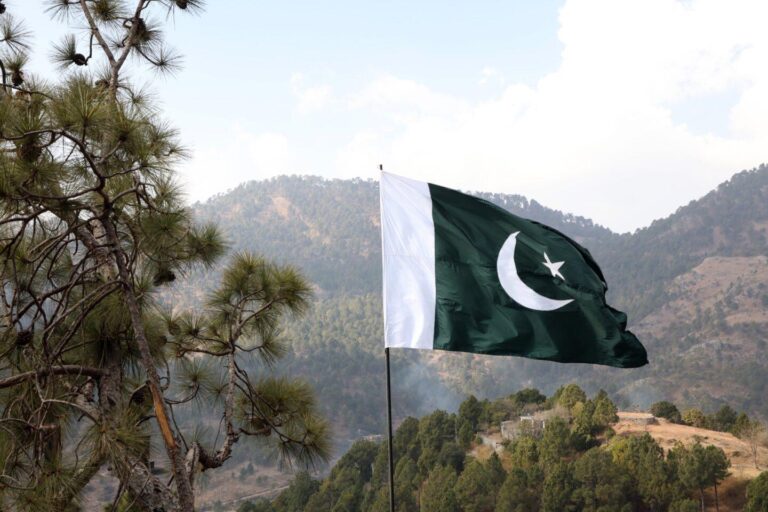Pakistan has expressed strong displeasure over recent India-Afghanistan talks, following the release of a joint statement that Islamabad perceives as undermining its regional interests. The Pakistani government has lodged an official protest with Kabul, signaling its growing unease over the evolving trilateral dynamics. As tensions simmer, analysts view this development as a critical juncture in South Asia’s complex geopolitical landscape.
Pakistan Condemns India Afghanistan Dialogue Citing Security Concerns
Pakistan has registered strong objections following the recent dialogue between India and Afghanistan, expressing deep concerns over matters of regional security and sovereignty. The joint statement issued at the end of the talks has been described by Islamabad as provocative and undermining Pakistan’s role in regional stability. Officials in Islamabad emphasized that the discussions, conducted without their involvement, could potentially embolden hostile activities and complicate existing peace efforts in the region.
In an official protest conveyed to Kabul, Pakistan underscored the following points:
- Violation of regional diplomatic norms by excluding Pakistan from critical security conversations.
- Potential escalation of cross-border tensions fueled by perceived alliances against its interests.
- Need for inclusive dialogue involving all neighboring countries to ensure a sustainable peace process.
| Issue Highlight | Pakistan’s Stance |
|---|---|
| Exclusion from Talks | Unacceptable and detrimental to regional trust |
| Security Concerns | Raises alarms over potential threats |
| Regional Stability | Calls for inclusive, multilateral engagement |
Joint Statement Spurs Diplomatic Protest as Islamabad Calls for Respect of Sovereignty
Islamabad has expressed strong dissent following a recent joint declaration between India and Afghanistan, which it views as a direct affront to Pakistan’s territorial sovereignty. The government swiftly summoned the Afghan ambassador, lodging a formal diplomatic protest emphasizing the principle of non-interference in internal affairs. Pakistan’s officials underscored that any bilateral agreements affecting regional stability must acknowledge Pakistan’s concerns and respect its sovereign rights. The protest also highlighted Islamabad’s growing unease about increased military and economic cooperation between New Delhi and Kabul.
Central to Islamabad’s objections are several key points:
- Perceived promotion of anti-Pakistan narratives within the joint statement, which Islamabad warns could destabilize the region.
- Concerns over cross-border insurgency activities allegedly supported by this trilateral alignment.
- Calls for enhanced diplomatic dialogue to ensure that all parties respect international norms and sovereignty.
| Issue | Pakistan’s Position |
|---|---|
| Sovereignty | Must be fully respected by all neighbors |
| Joint Statements | Should avoid rhetoric aggravating regional tensions |
| Bilateral Deals | Require transparency and regional consultation |
Experts Recommend Enhanced Regional Dialogue to Mitigate Growing Tensions
In the wake of the recent diplomatic discord sparked by India-Afghanistan engagements, analysts emphasize the urgent need for enhanced dialogue among regional stakeholders to prevent further escalation. Experts argue that without proactive communication channels, misunderstandings will intensify, undermining stability and peace efforts in South Asia. The call is for a structured framework where all concerned parties, including Pakistan, participate transparently and constructively to address shared security challenges and foster mutual trust.
Key recommendations from scholars and diplomats include:
- Initiating regular trilateral forums focusing on conflict resolution and cooperation.
- Enhancing intelligence-sharing mechanisms to combat cross-border terrorism effectively.
- Promoting economic partnerships that incentivize peaceful coexistence.
- Establishing joint monitoring committees for transparency in military activities.
| Stakeholder | Proposed Action | Expected Outcome |
|---|---|---|
| Pakistan | Active engagement in regional dialogue | Reduction in bilateral tensions |
| India | Transparency in Afghanistan policies | Building trust with neighbors |
| Afghanistan | Facilitation of inclusive discussions | Regional stability and cooperation |
In Retrospect
As tensions escalate following the India-Afghanistan joint statement, Pakistan’s formal protest underscores the deepening regional sensitivities and the fragile dynamics shaping South Asian geopolitics. How Kabul and New Delhi navigate these diplomatic frictions will be closely watched, with implications for peace and stability across the region.




